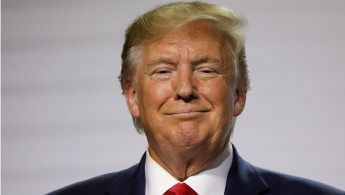"We are sanctioning Iran's Minister of Information and Communications Technology for restricting internet access, including to popular messaging applications that help tens of millions of Iranians stay connected to each other and the outside world," said Treasury Secretary Steven Mnuchin in a statement.
"Iran's leaders know that a free and open internet exposes their illegitimacy, so they seek to censor internet access to quell anti-regime protests," Mnuchin said.
The protests erupted across the country on November 15, after the price of petrol was raised by as much as 200 percent.
Officials have confirmed five deaths, while Amnesty International said that more than 100 demonstrators were believed to have been killed after authorities reportedly used live ammunition to quell the protests, which brought attacks on police stations and petrol stations and some looting of shops.
The Treasury said Azari Jahomi is a former official of the Ministry of Intelligence who has advanced internet censorship since becoming minister two years ago.
He has "also been involved in surveillance against opposition activists," the Treasury said.
Internet service remained mostly blocked on Friday for a sixth day, with officials and news agencies saying the blackout was gradually being rolled back.
The sanctions would freeze financial assets and property Azari Jahomi has in US jurisdictions and forbid Americans or US businesses, especially banks, from dealing with him.
On Thursday, President Donald Trump accused Iran of blocking the internet to cover up "death and tragedy" resulting from the protests.
"Iran has become so unstable that the regime has shut down their entire Internet System so that the Great Iranian people cannot talk about the tremendous violence taking place within the country," Trump tweeted.
"They want ZERO transparency, thinking the world will not find out the death and tragedy that the Iranian Regime is causing!" he wrote.
Follow us on Twitter and Instagram to stay connected





 Follow the Middle East's top stories in English at The New Arab on Google News
Follow the Middle East's top stories in English at The New Arab on Google News
![Both Hamas and the Palestinian Authority welcomed the ICC arrest warrants [Getty]](/sites/default/files/styles/image_330x185/public/2024-11/GettyImages-2178351173.jpg?h=199d8c1f&itok=TV858iVg)

